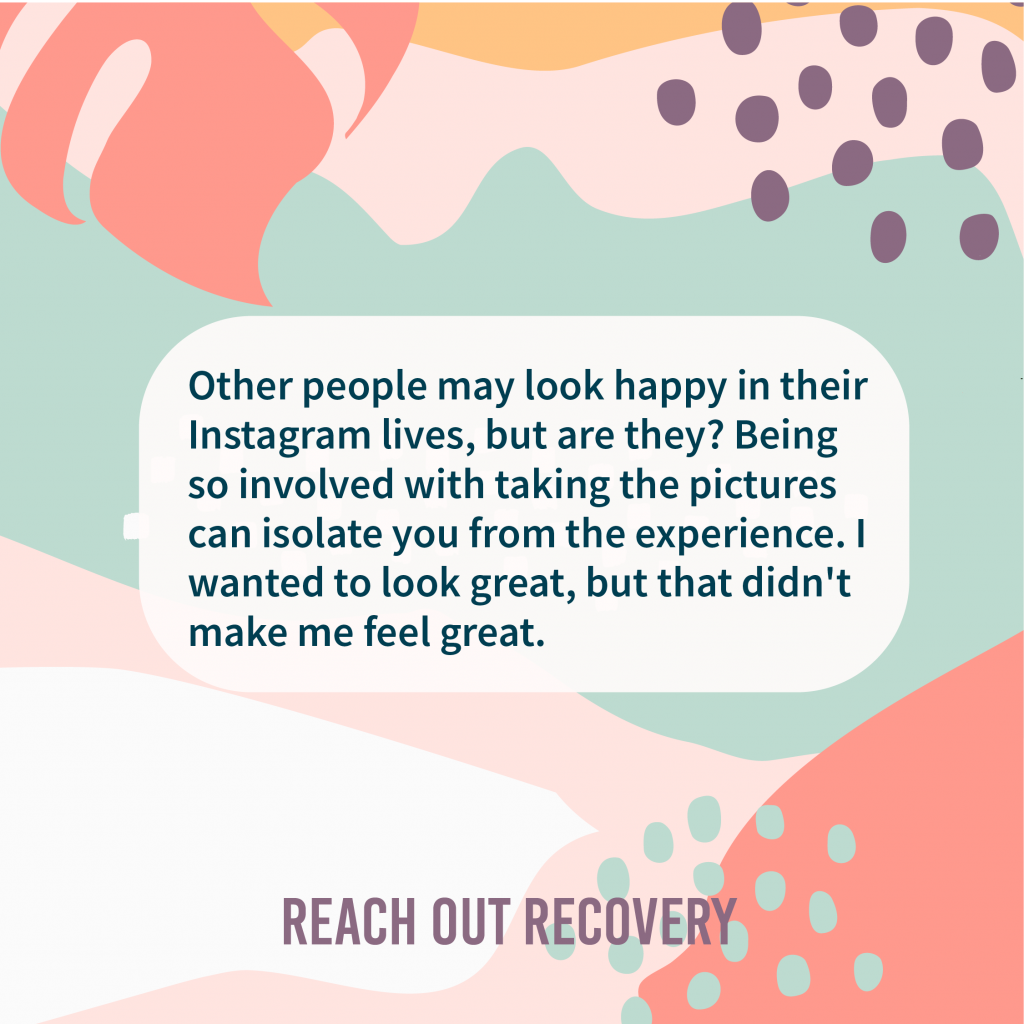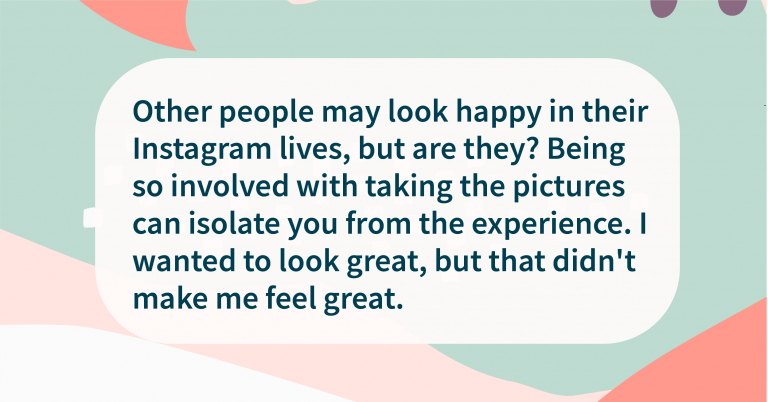
In today’s world, with social media, you can make your life look however you want it to look. I recently read a story about an Instagram influencer who got caught trying to look like she took a trip to Bali. In reality, most of the photos of her “exotic trip” she took in an Ikea. While it’s all well and good to have pretty pictures of your life, in recovery, what matters is how you feel about your life. Looking Instagram happy doesn’t help during the often lonely, sober hours of early recovery.
The pressure of always looking Instagram happy can get to you in weird ways
I often struggle with imposter syndrome. So, trying to keep up with a life that looks good in pictures had a weirdly negative effect on me. It’s not that I don’t want to post photos of happy times or achievements, I’m talking about the scripted, posed images that are conveying a life or moment that isn’t really happening. That concept didn’t sit well with me.
Looking happy and feeling happy are two totally different things
I went into recovery because I wanted to look and feel better. There was a disconnect for me when I tried to look happy and didn’t feel happy. In a way, faking it for the camera was a pressure I couldn’t live with every day. As my recovery went on, and my life got better and bigger, I felt less like an imposter and more like an authentic human. The good news is that I found a way to show aspects of my life I feel proud of and protect private moments that don’t need attention.
Looking for less validation on the outside also helped
After a while, I didn’t care what people thought anymore. That’s been the biggest help of all. When you’re not looking for anyone on the outside to validate you, there’s no need for Instagram happy moments. If they appear on their own, great. If they don’t, I don’t need them.





















